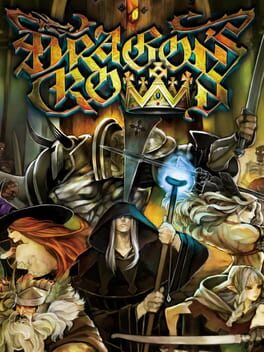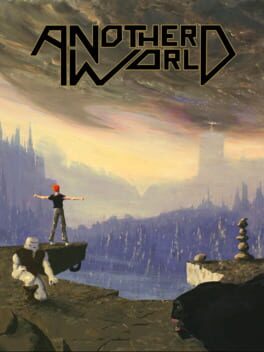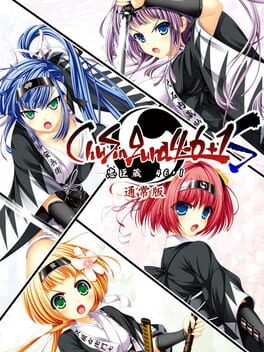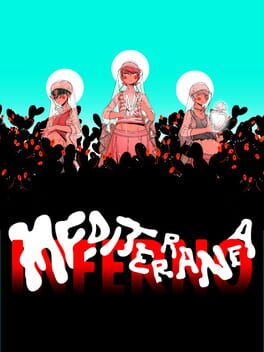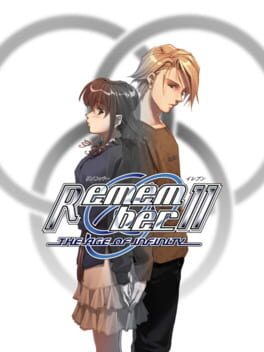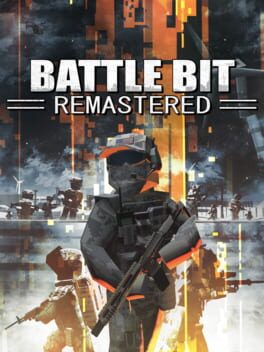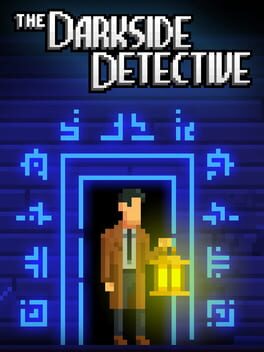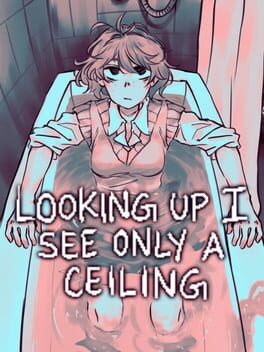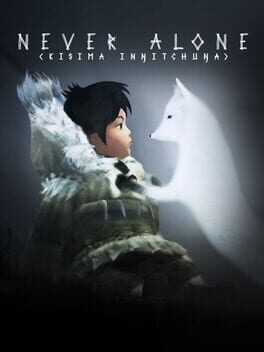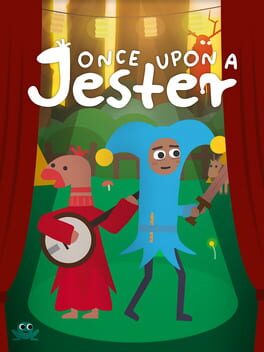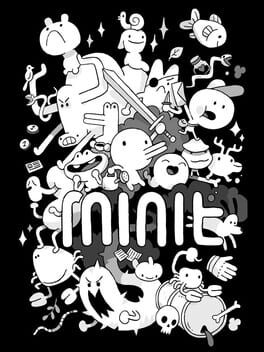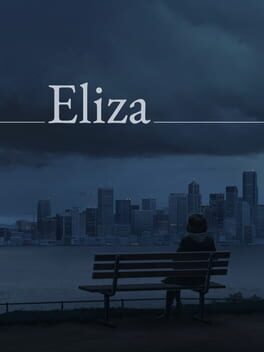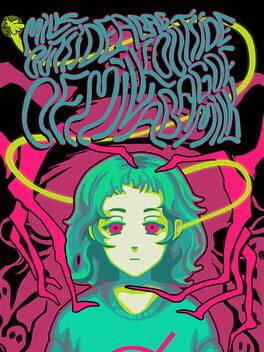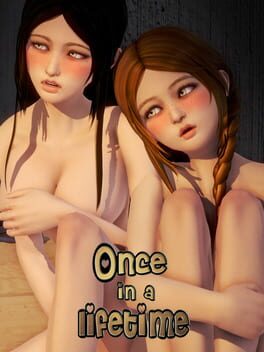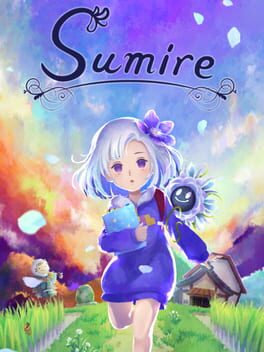mintcake
2013
1991
A frustrating game to play with zero tutorial, stiff control, obtuse puzzle and unaccommodating save point. A true pioneer that laid down the foundation for modern action adventure. It was perhaps too ahead of its time, that twenty years later, the golden formula of shooting, platforming and puzzle solving, accompanied by a strong cinematic direction and narrative focus, finally revealed its true potential. This is a fascinating piece of videogame history that is well worth experiencing, but you'd better have a guide in hand.
2016
2023
Playing this game as someone who is not gay, not Italian, and played a shit ton of videogame with my friends during Covid, I cannot relate to this game at all, which is exactly why the game is so cool to me. I want to feel the pain without actually experiencing it, the more dramatic the better. Too bad the game has the worst saving system of a visual novel ever. The auto save messes up everything and it cannot be turned off. Skipping content you've already seen is also a pain in the ass.
This review contains spoilers
This game asks a lot of suspension of disbelief from the player, and I tried my best to oblige without success. It is not the extraordinary situations (and their flimsy explanation) that distracted me from enjoying the story, but the way characters react to these situations. Kokoro often doesn't seem to grasp the dire situation she's in and is often distracted by minor affairs, while Satoru seems to put his curiosity over his immediate danger. It is clear from the start that the mystery itself is the only thing that matters for the developer, characters are mere tools in it.
But which mystery? How do the characters escape from the looming doom? How do they exchange conscious across space and time? These questions are answered in the game, but as I mentioned, the explanations are flimsy (quantum mechanics shenanigan).
There is one big mystery remains: what is this whole story all about? It doesn't have the most compelling characters, it doesn't have romance, and the sci-fi elements are quite cliche (at least in 2024). Is that it? What's the point? At the very, very end of the game, the game told me "the truth is not revealed". But how could it be if I have reached the end (all 33 of them in fact)?
I can only imagine the frustration that people feel when they played the original version of the game. Indeed, the game was considered incomplete, and people had been data mining for a missing last chapter. The history log that was added in the PSP version is the closest thing to what people were looking for. With its help, all of sudden everything clicks. Not only does it elevate the story to a whole new dimension (literally), it also ties the game to the two previous entries in the series. Even I, who is usually not a fan of meta narrative, have to begrudgingly agree that the real trick of the story, the mystery that is bigger than time travel, is pretty fucking cool. After Ever17, they got me again.
But which mystery? How do the characters escape from the looming doom? How do they exchange conscious across space and time? These questions are answered in the game, but as I mentioned, the explanations are flimsy (quantum mechanics shenanigan).
There is one big mystery remains: what is this whole story all about? It doesn't have the most compelling characters, it doesn't have romance, and the sci-fi elements are quite cliche (at least in 2024). Is that it? What's the point? At the very, very end of the game, the game told me "the truth is not revealed". But how could it be if I have reached the end (all 33 of them in fact)?
I can only imagine the frustration that people feel when they played the original version of the game. Indeed, the game was considered incomplete, and people had been data mining for a missing last chapter. The history log that was added in the PSP version is the closest thing to what people were looking for. With its help, all of sudden everything clicks. Not only does it elevate the story to a whole new dimension (literally), it also ties the game to the two previous entries in the series. Even I, who is usually not a fan of meta narrative, have to begrudgingly agree that the real trick of the story, the mystery that is bigger than time travel, is pretty fucking cool. After Ever17, they got me again.
2023
With graphics like Minecraft and a tiny development team, it just could not become the next big indie shooter. Since the first day it launched, the developer could not make up their mind on whether making it a tactical shooter or an arcade shooter, and the result is a game that is best played like CoD TDM but with visage tactical shooter mechanics. I do hope another bigger team could learn from this game's dedication to destruction, teamwork and communication, and produce a true Battlefield challenger.
Of course, comparison with milk series is unavoidable. This one is much more straight forward, and much lighter. There is no serious mental illness, no boundless isolation, just a student under the weight of her study, dealing with anxiety and exhaustion, something quite relatable to many of us. Indeed, it ends on a much more positive note, just like how most of us got it through.
2022
A fun little adventure game about theater and music. It has such a strong sense of expression and a total devoid of any hint of user-oriented design, that despite being a commercial product, it gives out the impression of a fan project. It is the obvious mistakes in the voice acting, the music recording that clearly didn't come from professional setup, and the story that goes off to which ever direction any moment it sees fit, that bring the game close to the player's heart. Crude yet intimate.
2018
Cute little action adventure game that clearly hankers back to classic 2D Zelda. Not a challenging game by any means, but the one minute (minit, huh) timer adds a little spice to it. It has a surprising amount of secrets and collectables to compensate fora less than one hour main quest. It got me feel directionless at times, but I guess that's the Zelda 1 experience this game aims at.
2019
The story has two intertwining threads: one about AI and ethics, and another about self realization. The former is about as lofty and familiar as the other three thousand works of art you have seen, but made slightly more relevant with recent develop in the field. The latter is undoubtedly originated from genuine personal experience as someone worked in tech in Seattle. I find the latter more intriguing. In a sense, Nora ending is probably the canon one, since that's the path the creator of this game chose: to be a musician and writer.
Evelyn has a lovely voice that is perfect for therapy. I especially love the way some lines are performed with a subtle chuckle held in. Everyone else also sounds causal, professional, or emotional in all the right way. Massive kudos to the voice actors and director.
Evelyn has a lovely voice that is perfect for therapy. I especially love the way some lines are performed with a subtle chuckle held in. Everyone else also sounds causal, professional, or emotional in all the right way. Massive kudos to the voice actors and director.
Took a comprehensive analyze piece for me to understand the game. I figured out a coupe of things, but the endings, allegedly, were about mental treatments that I have no knowledge of. This is an absolutely horrifying peek into the head of someone with mental illness, and one that sparks understanding and compassion.
2021
I'd always like to think I'm somewhat familiar with eroge, but only recently did I discover the world of western Ren'Py VN. In my defense, the few times I encoutered one of these games, it looked like nothing more than "big dick go brrr". This game certainly is that, but the narrative is far more evolved than I expected. There's a plot that is genuinely interesting and characters whose charm extends beyond physical attributes. There are jokes that actually made me laugh, and scenes that are surprisingly moving. I'd say the porn to story ratio is still on the high end, but it has always been a fine line to walk for an eroge creator, especially for one who was making their maiden work and did not realize the full potential of their own storytelling ability.
2021
